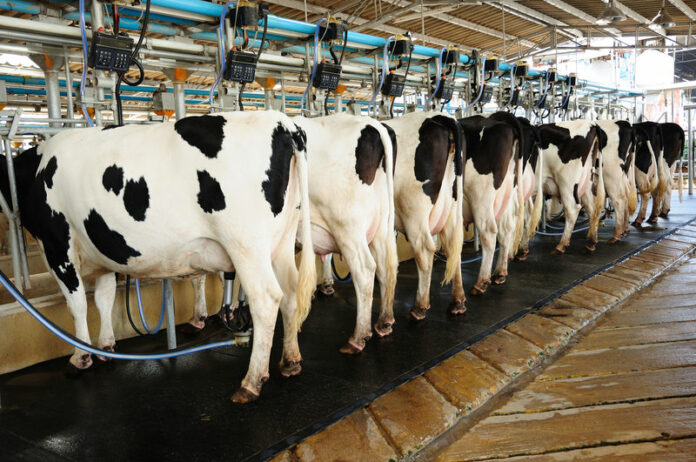Solomon Mulema is a dairy farmer in Vihiga County. His journey to becoming a successful farmer was not easy, and he recalls almost shutting down his enterprise due to losses.
The teacher, by profession, ventured into dairy farming after retiring. With proceeds from his pension, Mulema constructed a modern cattle shed and purchased six expensive cows, some costing up to Sh200,000 each.
He also invested heavily in feed purchases, veterinary services, and hiring farmhands. The venture was at first promising, but after five years, he was running into losses prompting him to quit the venture.
His decision, however, took a different turn when he attended the Agricultural Society of Kenya (ASK) show in Kisumu and met trainers from the Israeli Dairy School who guided him on the best dairy farming practices.
“Through my interaction with the trainers, I learned where I had gone wrong and immediately embarked on changes.”
“For example, I had gone into dairy farming with the notion that expensive cows produce the most milk, and I spent a lot of money sourcing cows from suppliers, who claimed to import from areas like Manilla in the Philippines,” Mulema said.
Jackson Keitany: How dairyman earns Sh. 46,000 more monthly switching feeds
He says that some of the animals he bought looked like heavy producers but failed to reach one-third of the advertised 30 liters per day.
He realized that the cows were an unproductive breed that was fabricated to look attractive using steroid hormones and other drugs.
“For a long time, I knew that cows with big udders yielded the most milk, and that was one of the criteria I used when building my herd. Little did I know that the industry is full of cons,” he said.
Besides the cow purchase mistake, Mulema was also not feeding his cows quality feeds, leading to reduced yields.
“I concentrated on commercial feeds, like dairy meal, which I had presumed to boost yields and did not properly invest in evaluating the quality of plant-based feeds.”
“Now I am a lot wiser and understand the importance of a proper balance between hay, processed feed, and water in the production of milk,” he said.
Mulema advised beginner dairy farmers to purchase animals that have already calved before and have proper records of production and management.
He adds that right feeding is key for high yields as more than three-quarters of a cow’s milk production is determined by how you feed them.
A balance of grain, silage, and feed supplement should be maintained, and the farmer should keep records of the amount of feed each animal consumes.
Mulema notes that keeping feed records prevents overfeeding, which would lead to fattening instead of increased milk.
“Cows are most productive when they are not stressed. It is, therefore, important to ensure that the sheds are designed to give optimum shade against the elements. In addition, cleanliness should not be underestimated,’’ He stated.
Mulema further urged farmers to invest in training with reputable agencies for higher production.








